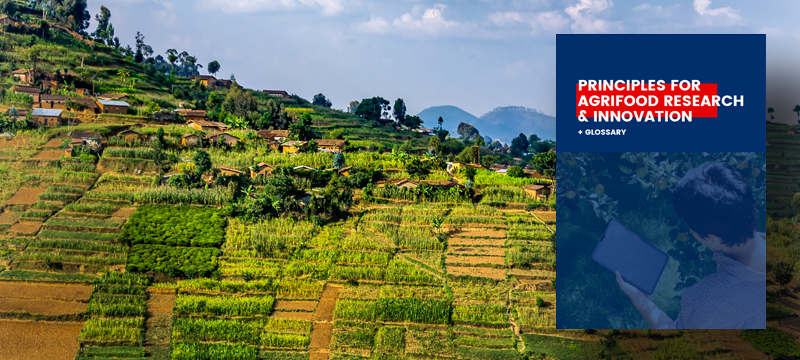
Principles and metrics for innovation in sustainable agri-food systems
A huge increase in investment in innovation for agricultural systems is critical to meet the Sustainable Development Goals and Paris Climate Agreement. Most of this increase needs to come from reorienting existing funding for innovation. However, understanding whether an investment will fully promote environmentally sustainable and equitable agri-food systems can be difficult.
A Task Force of voluntary experts convened by CoSAI has developed a clear set of Principles for innovations and innovation processes that promote sustainable agri-food systems, together with guidance and metrics to support these Principles. Following pilot testing in early 2022, the Principles can now be used to plan, guide and monitor progress against sustainable agri-food systems objectives.
Find out more in this CoSAI policy brief.
Eight Innovation Process Principles
|
For more details, see the full list of Principles for Agri-food Research and Innovation and Step-by-Step Guide (including Glossary and Frequently Asked Questions). Metrics and scoring templates to accompany the Principles can also be downloaded from the Attachments area on this page.
Read our policy brief to learn more.
This work was supported by the United States Agency for International Development (USAID) Bureau for Resilience and Food Security/Center for Agriculture-led Growth under the Cooperative Agreement # AID-OAA-L-14-00006 as part of Feed the Future Innovation Lab for Collaborative Research on Sustainable Intensification (SIIL). Any opinions, findings, conclusions or recommendations expressed are those of the authors alone.

